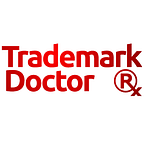Nike Jesus Shoes? Why Isn’t That Trademark Infringement?
Did Nike give its blessing to the Jesus shoes? Why is Nike not suing the maker for trademark infringement and false light? Does trademark infringement depend upon how the trademark owner feels about the alleged infringement?
So we’ve seen that Nike is up in arms about the infamous “Satan Shoes” but there was another aftermarket alteration that they didn’t care about — the Jesus Shoes.
The “Jesus Shoes” were Nike Air Max 97 shoes that had the soles filled with holy water. Why didn’t Nike get made about that alteration? Because it didn’t put Nike and its products in a bad light, and the company didn’t feel like there was a risk of harm to Nike’s corporate reputation for being associated with Jesus. So Nike did not sue for trademark infringement or for false designation of origin because Nike felt that the association with Jesus was a positive thing for their company.
If the trademark owner feels that the alleged infringement is temporary — such as a limited edition — and involves a positive portrayal of their company, they might not sue for trademark infringement, especially in view of the “first sale” doctrine. The trademark first sale doctrine says that a purchaser who purchased a product through authorized channels may modify and resell the product, and that action is not an infringement upon the rights of a trademark owner, no matter whether the trademark owner likes the reseller or not. Barring other arguments (such as reputational harm via a false association with an unsavory practice like Satanism, or material differences in the goods that are being resold) a trademark owner will probably not be able to stop the modifying buyer from selling the trademarked products that have been modified.
Where there is a false association between the modifier and the trademark owner, the aggrieved trademark owner has an opening to argue that the advertising of the unsavory goods creates reputational harm for the trademark owner, and try to stop further sales based on the potential reputational harm to the trademark owner’s business. So just because you are the right under the “first sale” doctrine, you could still be liable for the harmful false association that you create if the false association harms the trademark owner’s business.
It’s not a requirement that a trademark owner sue each and every infringer, but a trademark owner is required to police their mark so that it remains an exclusive identifier for their products. If a trademark loses its unique association with the owner’s goods and/or services, then the trademark can become “generic” or fall into such common use that the trademark no longer serves as a source identifier for the company.
I’m on Facebook! “Like” my facebook page, to be notified every time I go LIVE. Do you have trademark questions? Message me on the Trademark Doctor Facebook page, and I’ll answer your questions on a future Live video.
Contact Dallas, Texas trademark attorney Angela Langlotz today to get started on a trademark application for your valuable brand.
